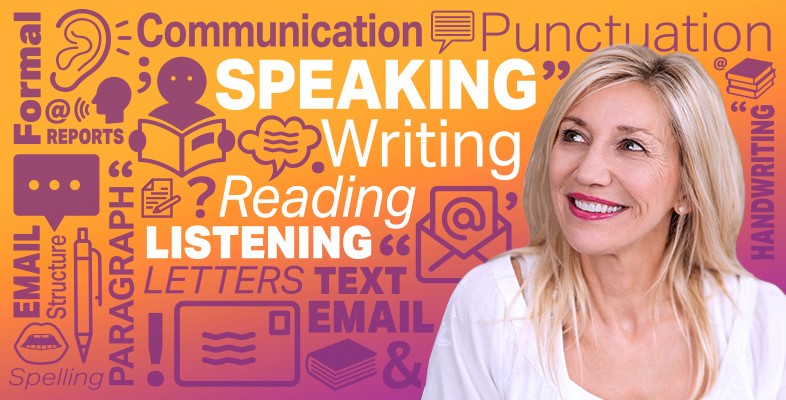Speaking and listening
Introduction

Transcript
For most people, speaking and listening is the part of English they do the most. From short ‘hellos’ or commands to our dogs, to detailed discussions to plan for tomorrow’s work, to telling a story, we all speak and listen throughout the day, every day.
People typically speak thousands of words a day and hear even more, especially if you count television and radio.
Employers regularly say that being able to speak clearly and confidently and to listen carefully is the most important English skill they look for in their employees. Good speaking and listening skills are vital in almost every workplace to communicate effectively with customers, colleagues and managers.
This session is the longest in the course but is broken up into clear and easily manageable sections to help you in your studies.
If you are doing this course to prepare you for either the Functional Skills English Level 1 qualification or the Essential Skills Wales Communication Level 1 qualification, remember that speaking and listening is an important part of both programmes.
For the Functional Skills English Level 1 qualification, the speaking and listening assessment consists of two assessed discussions. You must pass them both to gain the Level 1 qualification.
For the Essential Skills Wales Communication Level 1 qualification, there are two parts: a controlled task and a confirmatory test. The controlled task includes a speaking and listening assessment in the form of a small group discussion, as well as a reading and a writing assessment.
